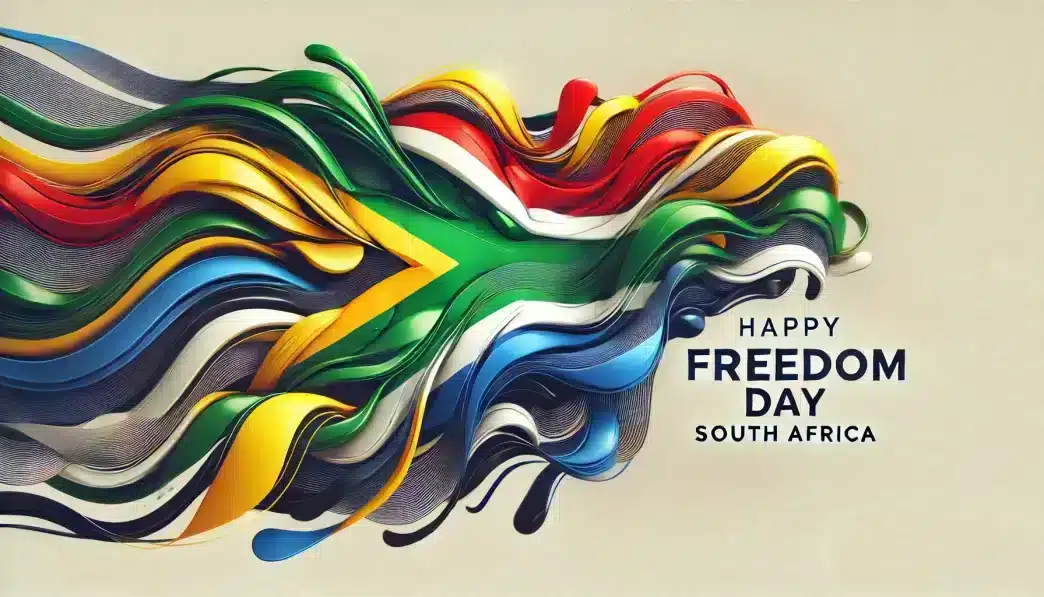What is Freedom Day?
Freedom Day is celebrated annually on April 27 in South Africa to commemorate the first democratic elections held in 1994. This day marks the official end of apartheid, a system of institutionalized racial segregation and discrimination that lasted for nearly 50 years. It symbolizes the triumph of democracy and the realization of equality for all South Africans. Freedom Day is not just a celebration of liberation but also a moment to reflect on the long and painful history that led to this milestone.
History and Origin
On April 27, 1994, South Africans of all racial backgrounds voted together for the first time, ending decades of apartheid rule. This historic election led to Nelson Mandela becoming the country’s first Black president, ushering in a new era of democracy. However, the roots of South Africa’s systemic inequality trace back to colonization, beginning with the Dutch East India Company’s establishment of a settlement at the Cape in 1652. The Netherlands played a pivotal role in South Africa’s colonial history, introducing slavery and laying the foundation for racial hierarchies that apartheid would later institutionalize.
Freedom Day serves as a reminder of the resilience of those who fought against centuries of oppression and colonial domination.
Who Celebrates Freedom Day?
- South African Citizens: Millions across South Africa reflect on the journey from apartheid to democracy.
- Government Leaders: Officials host ceremonies and give speeches highlighting the importance of unity and equality.
- Cultural Organizations: Groups hold exhibitions and performances celebrating South Africa’s diverse heritage.
- Educational Institutions: Schools teach the history of apartheid and its impact on the nation.
- Global Allies: Nations and individuals who supported South Africa’s fight for freedom, acknowledging both solidarity and historical complicity.
Slogans and Themes
Freedom Day focuses on themes of democracy, liberation, and reflection. Popular slogans include “From Struggle to Freedom,” “Celebrating Democracy,” and “Unity in Diversity.” These messages honor the sacrifices made in the fight for equality and call for ongoing efforts to address the legacies of apartheid.
Colors, Symbols, and Patterns
Colors
- Green, Gold, Red, Blue, Black, and White: The colors of the South African flag symbolize unity and diversity.
- Yellow: Represents hope and the future of an equal South Africa.
- Black and White: Highlight the struggle for racial equality and reconciliation.
Symbols
- South African Flag: Represents a unified nation overcoming division.
- Voting Ballot Box: Symbolizes the 1994 elections and democratic participation.
- Freedom Charter: A document reflecting the vision of equality and human rights.
Patterns
- Geometric Designs: Reflect South Africa’s rich cultural traditions.
- Traditional African Prints: Celebrate the vibrant heritage of the country’s communities.
- Unity Patterns: Combine diverse colors and shapes, symbolizing reconciliation.
Most Used Hashtags
- #FreedomDay
- #SouthAfricaFreedomDay
- #ApartheidToDemocracy
- #April27
- #UnityInDiversity
How to Celebrate Freedom Day
- Visit Historical Landmarks: Explore places like Robben Island, where Nelson Mandela was imprisoned, or the Apartheid Museum.
- Engage in Community Events: Join local festivals, art exhibitions, or cultural performances that highlight South Africa’s diversity.
- Learn About History: Read books, watch documentaries, or attend lectures about South Africa’s struggle against apartheid.
- Reflect on Reconciliation: Have meaningful conversations about the legacies of colonization and apartheid.
- Support Equality Efforts: Donate to or volunteer with organizations that address social and economic inequality in South Africa.
Why is Freedom Day Important?
Freedom Day is a powerful reminder of South Africa’s resilience and the sacrifices made to achieve democracy. It also highlights the global complicity in colonialism and apartheid, as well as the need for accountability and reflection. For the Netherlands, this day is a moment to acknowledge its colonial past and the role it played in creating the systems of inequality that apartheid formalized. While Dutch activists supported the fight against apartheid later on, the foundations of systemic racism in South Africa were laid during centuries of colonization.
By celebrating Freedom Day, we honor the victories of South Africans and commit to addressing the inequalities that persist today. It is a day to reflect, to learn, and to strive toward a future of equality, justice, and understanding.
Features
Contact Info
April 27: Freedom Day (South Africa)
Why do you keep falling for the same type?
Read the article Lovemaps: the hidden blueprint of our love.
Did you not find what you were looking for? Let me help you find more.

